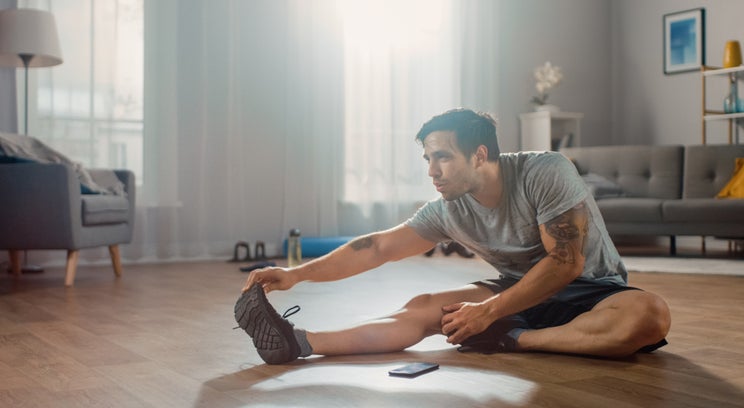
“Say Yes to Well-being: How Daily Incremental Changes Can Transform our Lives,” authored by Olesja Cormney, Jeff Compangano, and Jill Kalliomaa, was featured in the April 2020 ACC Docket. The article encouraged readers to incorporate daily incremental changes to create true, lifelong well-being. It included six ways to increase personal well-being:
- Inquire about your workplace resources;
- Find time to be quiet;
- Focus on physical health daily;
- Value meaningful connection;
- Establish priorities and boundaries; and
- Know it’s OK to ask for help.
That article was written only a few months before the global outbreak of COVID-19, but its message about the power of making daily incremental changes — something that is within our control — is perhaps even more helpful as the pandemic continues. Many in-house counsel wonder how to maintain our well-being during this time when we feel that much of what is happening is out of our control and our usual ways of coping with stress have changed or are no longer available.
Without doubt, this is a stressful time
We are experiencing constant fear and anxiety as we learn more about a new disease and how the pandemic will affect us and our communities. On top of that stress, we must isolate ourselves to prevent the spread of the disease. Social distancing and working from home can make us feel lonely by removing our usual support system and office banter.
As this stress builds, we may be tempted to turn to unhealthy coping mechanisms, such as increased alcohol consumption. To make matters worse, we are confronted with countless articles and tips about what we “should” be doing to be productive and fulfilled during this time. All of this further exacerbates our stress level as we might not be doing all these things with our time.
IRAC method
As stress increases and motivation decreases, we need to analyze how to resolve these negative influences. As a throwback to law school, the authors of the original “Say Yes to Well-being” article will apply the IRAC method to each bullet above to reach the best conclusion on how to address the stress caused by our “new normal.” As a refresher, we will:
- Identify the ISSUE;
- Apply the relevant RULE;
- Conduct an ANALYSIS; and
- Ultimately reach a CONCLUSION.
Today’s topic: Focus on physical health daily
If asked the name of your best friend, you would likely think of someone who continues to be there for you in good times and the challenging ones. Would it be a childhood friend, law school friend, parent, or significant other?
We propose a different best friend: your body. Your body supports and sustains you without judgment and simply needs you to reciprocate on some level.
So, how do you do that? You know that answer and have heard it many times: daily physical activity. However, now more than ever, demands on our time are increasing as work hours seep into personal time. How do you find the time to exercise every day? Let’s approach it like any other matter we are confronted with as legal professionals.
Issue
We now have even less time to focus on physical activity due to disruptions from the pandemic. Many of us are working long hours from home, some are furloughed, while others are in transition.
To make matters worse, many of us are juggling unforeseen responsibilities, such as acting as a daycare and educator for our children. Yes, we may be entering yet another phase of reopening (or re-closing), but work and life in general will likely not return to “normal” for a long time, if ever. In fact, we need to adapt and find new ways to build healthy habits and routines.
Rule
Health experts advise that we need to devote at least 30 minutes a day to physical health through cardio and weight-bearing exercise. You don’t have to look far to get bombarded with the message that you must stay active and must work hard at physical activity to enjoy the benefits. It’s so frustrating since the reality is that if we couldn’t find time before, how are we supposed to do that now?
Analysis
The first step is to evaluate the research and programmed mindset that states you have to put in so much time to maintain physical health. The more you apply the facts of the situation to past and ongoing research, the more evident it becomes that you do not need to do 30 minutes of exercise continuously or do long, drawn-out bouts of exercise to become and stay physically fit.
In fact, much of the past (an overlooked) and current school of thought indicates that shorter bursts of regular exercise are better for you. The key to physical fitness is not duration — it’s consistency. If you do any physical activity on a regular basis, your physical fitness will be vastly improved.
Your new mantra should be that the key to physical fitness is not based on the quantity of time spent on working out, but rather the consistency of it. Aim to do something active each day, whether it’s walking during your break, stretching when you wake up and go to bed, or playing hide and seek with your kids. Even if you become discouraged, remind yourself that you will see improvements in your health and stress levels.
Conclusion
If you want to restart a traditional workout, pick an activity that’s short and flexible enough to fit your busy schedule. Keep it simple and don’t throw in obstacles to your well-being unless you intend to jump over them. Rethink daily physical activity and try the following suggested activities or create your own plan based on what you like to do.
- Find a short HIIT or Tabata workout online and start doing burpees, running in place, doing short sprints outside, or biking instead of driving to the store. The key is consistency. You can do a workout in eight intervals of 20 seconds of activity, followed by 10 seconds of rest. Is your best friend worth four minutes of your time a day? We think so!
- Resist the urge to over-complicate fitness by getting back to basics by doing squats, push-ups, and planks. Take all day if you need to complete 10 of each (they don’t need to be done continuously to bring benefits). Once you can do 10, add five the next day, and keep increasing by five every time you meet your new goal. An easy way to do this is to watch your favorite show and intersperse these exercises into your viewing. You will be amazed how your physical fitness will improve with this regular activity. This can be applied to any show’s main theme or even when commercials are playing on recorded shows if you don’t fast forward.
Parting thoughts
Now more than ever, we face increased stress and demands on our time, so take time to engage in regular amounts of physical activity to increase your fitness level and reduce your stress. Don’t worry about having to run a 5K every day; just focus on doing something active regularly and your “best friend” will be forever grateful.
While we cannot control what is happening in the world around us, we can make daily incremental changes to enhance our well-being. And taking control of these small steps – when we can — might make us feel better. Remember our new mantra and repeat after us:
“The key to physical fitness is not quantity of time; it’s consistency.”
Give this a try and devote at least four minutes to daily physical activity that you enjoy and reap the benefits that come with well-being.
Until we meet virtually again, stay tuned for the next installment in this series — and be well!
For more well-being tips, visit the ACC In-house & Wellness Support page. For more advice and resources on the pandemic, visit the ACC Coronavirus Resource page.






